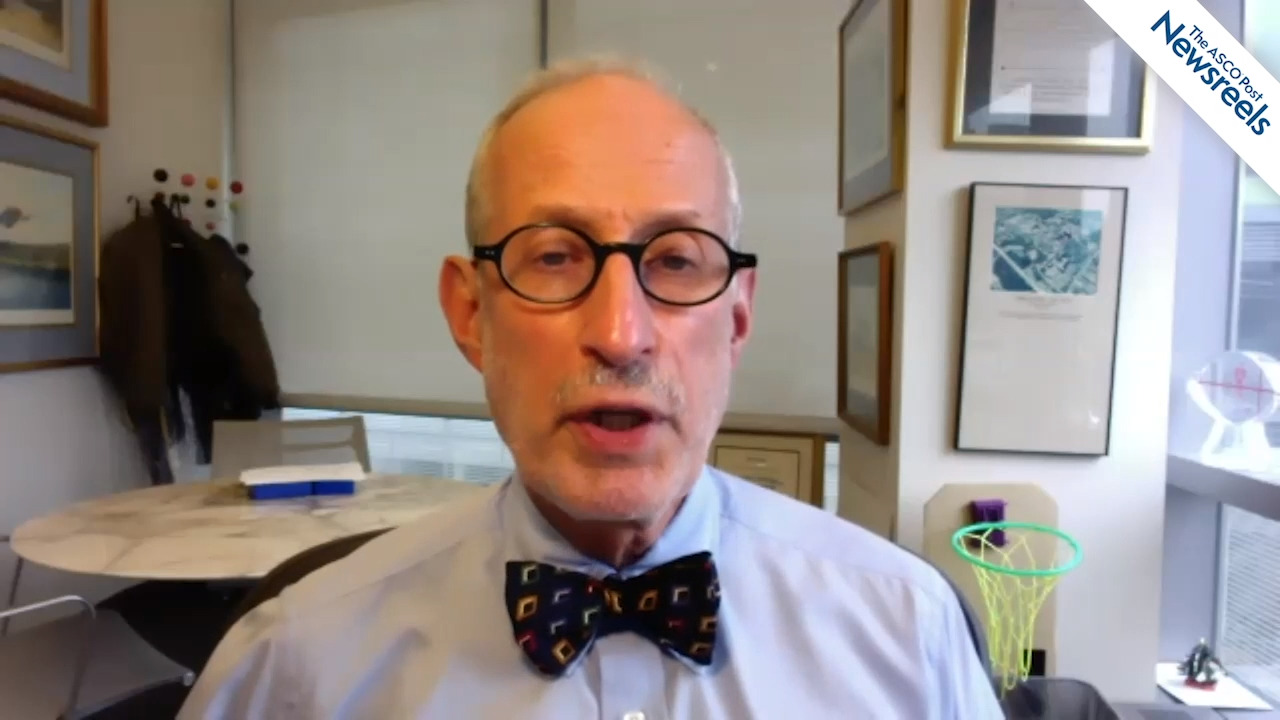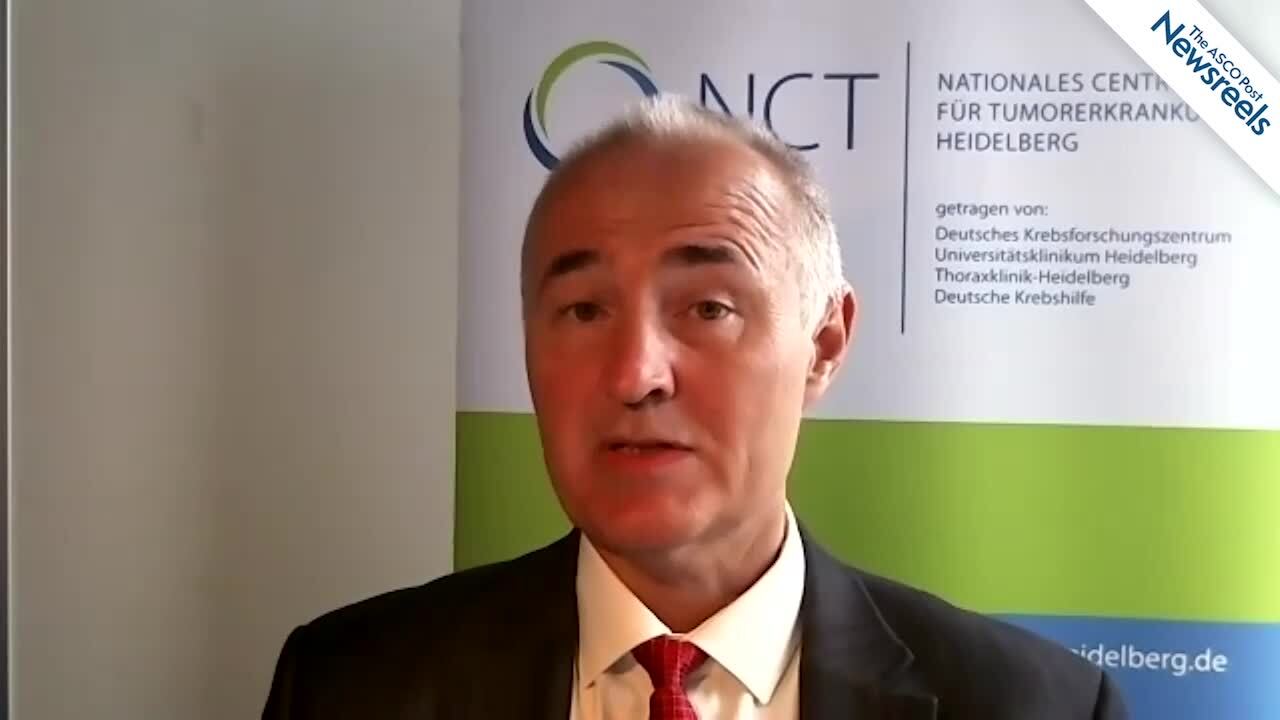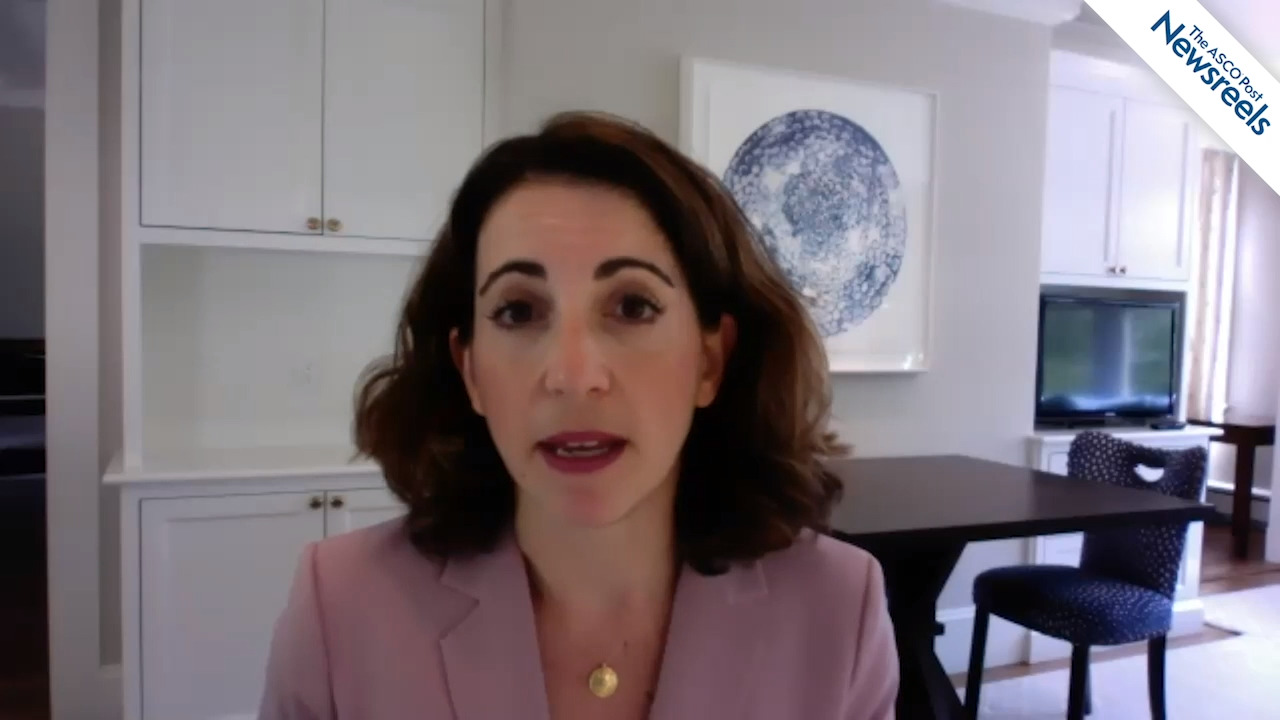Andreas du Bois, MD, PhD, on Ovarian Cancer: Niraparib, Trabectedin Plus Doxorubicin, Platinum, and Carboplatin
ESMO Virtual Congress 2020
Andreas du Bois, MD, PhD, of Kliniken Essen Mitte, discusses the NORA and INOVATYON studies of patients with recurrent ovarian cancer, detailing the findings for women in China with platinum-sensitive disease and women internationally who received trabectedin and pegylated liposomal doxorubicin (PLD) followed by platinum at disease progression vs carboplatin and PLD after disease progression (Abstract LBA29 and LBA30).
The ASCO Post Staff
Aditya Bardia, MD, MPH, of Massachusetts General Hospital Cancer Center, discusses results from the phase III ASCENT trial, which showed the antibody-drug conjugate sacituzumab govitecan-hziy improved progression-free and overall survival more than standard single-agent chemotherapy in patients with previously treated metastatic triple-negative breast cancer (Abstract LBA17).
The ASCO Post Staff
Jeffrey S. Weber, MD, PhD, of the Perlmutter Cancer Center, NYU Langone, discusses the 4-year recurrence-free and overall survival results from the CheckMate 238 study, which showed adjuvant nivolumab continues to be an effective treatment, vs the comparator ipilimumab, for patients with resected stage III/IV melanoma (Abstract 1076O).
The ASCO Post Staff
Andreas Schneeweiss, MD, of the Heidelberg University Hospital and German Cancer Research Center, discusses phase III survival data from the GeparOcto trial, which compared the neoadjuvant chemotherapy intense dose-dense EPC (epirubicin, paclitaxel, and cyclophosphamide) with weekly paclitaxel and liposomal doxorubicin (with or without carboplatin in triple-negative breast cancer) for patients with high-risk early breast cancer (Abstract 160O).
The ASCO Post Staff
Masahiro Tsuboi, MD, of Japan’s National Cancer Center Hospital East, discusses the phase III results from the ADAURA study, which showed a reduced risk of local and distant recurrence in patients with resected EGFR-mutated non–small cell lung cancer, reinforcing adjuvant osimertinib as an effective treatment (Abstract LBA1).
The ASCO Post Staff
Erica L. Mayer, MD, MPH, of Dana-Farber Cancer Institute, discusses an initial analysis of phase III findings from the PALLAS trial, which suggested the benefits observed in the metastatic setting with palbociclib plus endocrine therapy did not translate into the earlier adjuvant setting for patients with hormone receptor–positive, HER2-negative breast cancer. Long-term follow-up is ongoing (Abstract LBA12).





